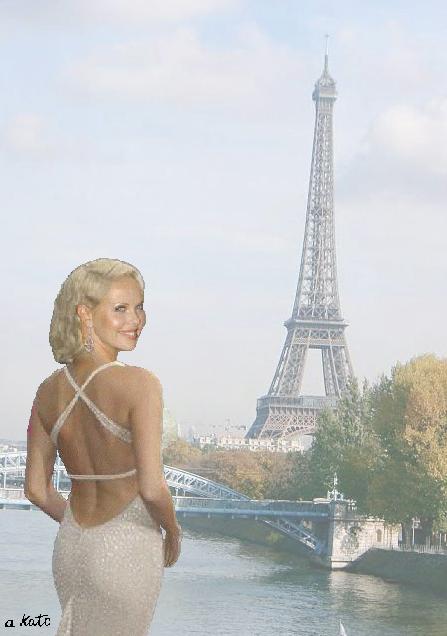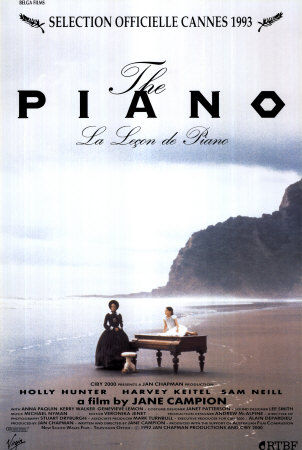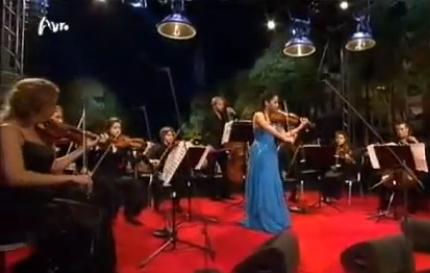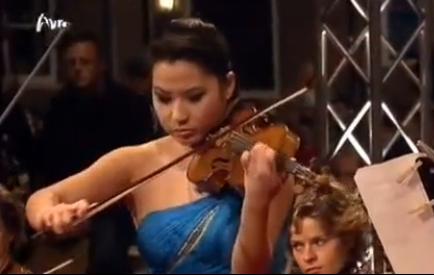
Subj:Summer is
just around the corner!
From: diane@vancouver.ca
To: barclay1720@aol.com
Date: Thu, Jun 30, 2011 4:37 pm.
Pacific Daylight Saving Time
Hi Kato,
Well, well, well ... my skinny Socrates!
You ARE a deep thinker, aren't you?
I quite agree that we often waste our time in idle chatter, and I'll be the first to admit I'm guilty on that account myself.
Often, I will ask myself what the best use of my day will be and, for a great part of it, I do manage to accomplish worthwhile activies ... like exercising, time in nature, contact with friends, rest, reading and contemplating ...

BUT there is still wasted slack time that's for sure.
...guess it's a dance we all have to learn---the dance of living a worthwhile life, don't you think?

■"Net Love"
Wednesday, June 29, 2011
I loved the above article ... very thoughtful.
I'm sure that chatroom lovers can eventually learn to love each other, while face-to-face might produce the opposite affect.
But when you think about it, a chatroom lover can't hold your hand, or kiss you or hold you or go with you to a movie very well now, can they?!

Nothing beats a face-to-face even thought there are no guarantees it will work out ... no guarantees either way, so might as well go for the real McCoy, I'd say.
Most chatroom love would be pseudo-love, I'm guessing.
Ah, it's all so very interesting, anyway.
Thanks so much for the above article, kiddo,

Love, Diane ~
SOURCE: "Complicated Love"
(May 22, 2011)

Kato, how come you've brought up my old mail?

Will...I re-read your mail the other day.
Did it impress you in any way?
Yes, it indeed impressed me.
What part?
The following part made me think twice.

Often, I will ask myself what the best use of my day will be and, for a great part of it, I do manage to accomplish worthwhile activies ... like exercising, time in nature, contact with friends, rest, reading and contemplating ...

BUT there is still wasted slack time that's for sure.
...guess it's a dance we all have to learn---the dance of living a worthwhile life, don't you think?

I don't think it should impress anybody that much.

Well... you wrote the above mail on Jun 30, 2011.
Yes, almost seven months ago.
Then I wrote the following article.

(diane509.jpg)
■"Diane in Paris"
(August 9, 2011)

In the above article I quoted the following passage:
Memories of
Saint Germain des Prés

In spring, I was sitting in the cafe of Saint Germain des Prés.
It was raining and cold.
I've taken two cups of café au lait.
Soon it started downpouring.
Nobody walked outside.
I looked out blankly when an old woman came in with a mandolin, followed by two dogs with drooping ears.
The old lady in a shaggy overcoat and the two dogs were soaked up in the rain.
The lady sat down at a table near me.
After wiping her dogs, she then wiped herself.
She was about 70 years old, apparently one of the street artists of Saint Germain des Prés.
Both dogs were gentle, tightly wrapped up for protection with a tiny blanket.
When a boy came in, the old lady ordered two café au lait, hot milk, and a snack.
The boy didn't throw out two wet dogs.
In Paris people care about dogs as much as themselves.
When the boy brought the drinks, the old lady took out a pan from her luggage, and poured some milk into it, then gave each dog some food.
Both dogs started licking warm milk happily.
The lady also sipped café au lait, holding the cup with cold-numb hands.
Relieved somewhat, I glanced at the adorable dogs once in a while.
Aftre half an hour, the old lady took out her purse and cheked into it, then she called the boy and asked for a favor.
Apparently, she didn't have enough money.
Although I was poor myself at the time, I couldn't ignore the scene, and walked up and paid on her behalf.
It wasn't much anyway.
The old lady thanked me a lot, saying that she would pay later after doing her performances on the street.
"Oh, don't bother. It was my present for your adorable dogs."
I like animals. So, I really meant it.
"Well, they are brothers, and I love both," said the old warm-hearted lady.
Whenever I walk through Saint Germain des Prés, the lady and the dogs come into my mind, warming my heart.
(Note: Picture from the Denman library
Translated by Kato)
SOURCE: "My heart's in Paris"
by Fujiko Hemming
57ページ 『我が心のパリ』
著者: フジ子・へミング
2005年2月25日 初版発行
発行所: 株式会社 阪急コミュニケーションズ
Ingrid Fujiko Hemming
La Campanella


Oh yes, I now remember. I viewed the above clip, and oh! what a magnificent performance! I marvelled at Fujiko's piano playing.

Yes, some people are really moved by her performance, saying that she is playing out her own life story.
Do you think so too, Kato?
Yes, I do.
But how come you've brought out the above passage?
Well, I thought Fujiko might have instilled something into your mind.
What made you think so?
You started to take piano lessons soon after I wrote the above article.
Yes, I did. I was doing some reading and jogging, and taking chi-gong lessons at the time, but I wanted to do something different, and then I watched the above clip, and decided to take piano lessons.
That's what I thought.
Did you take piano lessons, too, Kato?
Yes, sort of.
What do you mean?
Instead of taking real ones, I watched piano lessons.
Whose lessons?
Holly Hunter's
You mean, that famous actress?
Yes, but not in the real world---I watched her play her own piano pieces in the movie:
The Piano

(pianoholly.jpg)
The Piano is a 1993 drama film about a mute pianist and her daughter, set during the mid-19th century in a rainy, muddy frontier backwater on the west coast of New Zealand.
The film was written and directed by Jane Campion, and stars Holly Hunter, Harvey Keitel, Sam Neill, and Anna Paquin.
It features a score for the piano by Michael Nyman which became a bestselling soundtrack album.
Hunter played her own piano pieces for the film, and also served as sign language teacher for Paquin, earning three screen credits.
The Piano was a commercial and critical success, grossing more than $40 million, against its $7 million budget.
Holly Hunter and Anna Paquin received high praise for their role as Ada McGrath and Flora McGrath.
At the 66th Academy Awards, The Piano won three awards: Best Actress for Hunter, Best Supporting Actress for Paquin, and Best Original Screenplay.
Plot
The Piano tells the story of a mute Scotswoman, Ada McGrath (Holly Hunter), whose father sells her into marriage to a New Zealand frontiersman, Alistair Stewart (Sam Neill). She is shipped off along with her young daughter Flora McGrath (Anna Paquin). The voice that the audience hears is not her speaking voice, but her mind's voice. Ada has not spoken a word since she was six years old, expressing herself instead through her piano playing and through sign language for which her daughter has served as the interpreter.
Flora, it is later learned, is the product of a relationship with a teacher whom Ada believed she could control with her mind, making him love her, but who "became frightened and stopped listening," and thus left her.
Ada, Flora, and their belongings, including the piano, are deposited on a New Zealand beach by the ship's crew against her angry objections. As there is no one there to meet them, they spend the night alone, sheltering under a tiny tent made of a hoop skirt frame. The following day, Alistair arrives with a Māori crew and his friend Baines (Harvey Keitel), a fellow forester and a retired sailor, who has adopted many of the Māori customs.
While he socially allies himself with the Māori, Baines has steadfastly refused any sexual activity with Māori women. But he clearly finds Ada attractive due to her passion for music. Baines eventually retrieves the instrument and suggests that Alistair trade it — and lessons from Ada — for some land that Alistair wants.
Alistair consents, oblivious to the budding attraction between Ada and Baines. She is surprised to find that he has had the piano put into perfect tune after its rough journey. He asks to simply listen rather than learn to play himself, and then offers to let her buy the piano back, one key at a time, by letting him do "things he likes" while she plays. Ada reluctantly agrees, as she is attracted to Baines.
Ada and Alistair have had no sexual, or even mildly affectionate, interaction even though they are by now formally married. Baines is sexually aroused by Ada's playing to the point that he openly approaches her. Finally, she yields to her own desire one afternoon, and she and Baines have intercourse. Alistair finally begins to suspect the love affair and after discovering them, he angrily boards up his home with Ada inside when he goes off to work on his timberland.
After that interlude, Ada avoids Baines and feigns affection with Alistair, though her caresses only serve to frustrate him more because when he makes a move to touch her in return, she pulls away. Before Alistair departs on his next journey, he asks Ada if she will go to see Baines — she shakes her head no — and he tells her he trusts that she won't go to him while he's gone.
Soon after, Ada sends her daughter with a package for Baines, containing a single piano key with an inscribed love declaration that says "dear George, you will have my heart, Ada McGrath". Flora has begun to accept Alistair as her "papa" and is angered by her mother's infidelity. She brings the piano key instead to Alistair. After reading the love note burnt onto the piano key, Alistair furiously returns home and cuts off Ada's index finger with an axe to deprive her of the ability to play her piano. He then sends Flora to Baines with the severed finger wrapped in cloth, with the message that if Baines ever attempts to see Ada again, he will chop off more fingers.
After Ada recovers from her injury, Alistair sends her and Flora away with Baines and dissolves their marriage. They depart from the same beach on which she first landed in New Zealand. While being rowed to the ship with her baggage and the piano tied onto a Maori longboat, Ada feels that the piano is ruined as she can no longer play and insists that Baines throw the piano overboard. As it sinks, she deliberately puts her foot into the loop of rope trailing overboard. She is rapidly pulled deep underwater connected by the rope to the piano — but then she changes her mind and kicks free to be pulled back into the boat.
In an epilogue, she describes her new life with Baines and Flora in Nelson, where she has started to give piano lessons in their new home, and her severed finger has been replaced with a silver finger made by Baines.
SOURCE: "The Piano"
Wikipedia, the free encyclopedia

What an amazing story!

So, Diane, any romance between you and your techer?
Kato, I'm not taking lessons for romance.
Well, whenever you feel competent enough, you might as well give me piano lessons.
For romance?
Well... why not?
You're telling me all this simply because you wanna take piano lessons with me for romance, aren't you?
Oh no, I'm not. I was even impressed when I heard that you'd started to take violin lessons as well.
Yes, I started to take violin lessons a couple of months ago. How do you know?
You told me that. Don't you remember?
No, I don't.
You wouldn't belive me, but I play the violin.
Are you kidding?
No, I'm not. I'm quite serious.
What made you take violin lessons?
A good question? ...'Cause I listened to "Zigeunerweisen" played by Sarah Chang:

(sarah03.jpg)

Wow! What an amazing piece! I wish I could play like that.

I was really moved by her performance, and decided to take violin lessons.
Let me hear you play the violin.
Oh no, I'm just a beginner. When you feel competent enough, why don't you give me violin lessons?
For romance?
Well... why not?
【Himiko's Monologue】

Wow! ... Fujiko's piano play is superb.
Sarah Chang's violin performance is marvellous!
I wish I could play the piano and the violin so that I would be able to attract my "Romeo"---a decent man in my life.
How come I'm always a loner?
I wish I could meet a nice gentleman at the library in my town as Diane met Kato.
Well, they say, there is a way where there is a will.
I hope Kato will write another interesting article.
So please come back to see me.
Have a nice day!
Bye bye ...


If you've got some time,
Please read one of the following artciles:

■"Hello Diane!"
■"I wish you were there!"
■"Jane Eyre"

■"Jane Eyre Again"
■"Jane Eyre in Vancouver"
■"Jane Eyre Special"
■"Love & Death of Cleopatra"
■"Nice Story"

■"Scrumdiddlyumptious"
■"Spiritual Work or What?"
■"What a coincidence!"

■"Wind and Water"
■"Yoga and Happiness"
■"You're in a good shape"

■"Hellelujah!"
■"Ecclesiophobia"
■"Uncorruptible"
■"Net Travel & Jane"

■"Net Love"
■"Complicated Love"
■"Electra Complex"
■"Net Début"
■"Inner World"

■"Madame Riviera and Burger"
■"Roly-poly in the North"
■"Amazing Grace"
■"Diane in Paris"
■"Diane in Montmartre"

■"Diane Well Read"
■"Wantirna South"
■"Maiden's Prayer"
■"Bandwidth"
■"Squaw House and Melbourne Hotel"

■"Tulips and Diane"
■"Diane in Bustle Skirt"
■"Diane and Beauty"
■"Lady Chatterley and Beauty"
■"Victoria Prudery"

■"Diane Chatterley"
■"From Canada to Japan"
■"From Gyoda to Vancouver"
■"Film Festival"
■"Madame Taliesin"
■"Happy Days"
■"Vancouver Again"
■"Swansea"

■"Midnight in Vancouver"
■"Madame Lindbergh"
■"Dead Poets Society"
■"Letters to Diane"
■"Taliesin Studio"

■"Wright and Japan"
■"Taliesin Banzai"
■"Memrory Lane to Sendai"
■"Aunt Sleepie"
■"Titanic @ Sendai"
■"Birdcage"
■"Roly-poly in the wild"
■"Silence is dull"
■"Zen and Chi Gong"


Hi, I'm June Adames.
"Zigeunerweisen" means "Gypsy Airs."
It is a musical composition for violin and orchestra written in 1878 by the Spanish composer and virtuoso Pablo de Sarasate.
It premiered during the same year in Leipzig.
It is based on themes of the Roma people, specifically the rhythms of the csárdás.
It is Sarasate's most popular composition and a favorite among violin virtuosi.
The work has remained a staple on records at least since Sarasate himself recorded it in 1904.
It has also been recorded by many violinists including Sarah Chang, who is an American violinist.

(sarah02.jpg)
Her debut came in 1989 with the New York Philharmonic and the Philadelphia Orchestra.
Shortly thereafter, Chang was recognized as a child prodigy.
She enrolled at Juilliard School to study music, graduating in 1999.
During the 1990s and 2000s, Chang had major roles including being a soloist with the New York Philharmonic.

ところで、愛とロマンに満ちた
レンゲさんのお話をまとめて
『レンゲ物語』を作りました。
もし、レンゲさんの記事をまとめて読みたいならば、
次のリンクをクリックしてくださいね。
■『愛とロマンのレンゲ物語』

■『軽井沢タリアセン夫人 - 小百合物語』
とにかく、今日も一日楽しく愉快に
ネットサーフィンしましょうね。
じゃあね。







0 件のコメント:
コメントを投稿